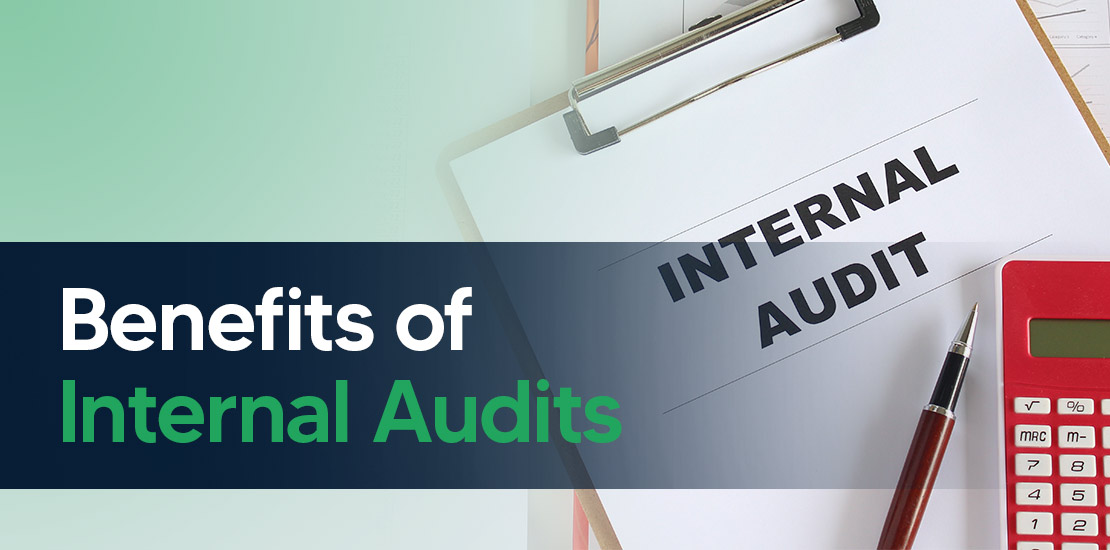Table of Contents
- What is VAT (Value Added Tax)?
- Who Needs to Register for VAT in Saudi Arabia?
- Documents Required for VAT Registration in Saudi Arabia
- What is the VAT Registration Process in Saudi Arabia?
- VAT Responsibilities After Registration
- VAT Deregistration in Saudi Arabia (When & How)
- Penalties for Late VAT Registration in Saudi Arabia
- Make Your VAT Registration Simple & Stress-Free
- Commonly Asked Questions
Value Added Tax (VAT) is now a regular part of running a business in Saudi Arabia. Since it was introduced, VAT has applied to most goods and services, which means almost every business needs to understand how it works. Even if you are starting a new company or already running one, knowing the basics of VAT is important to avoid mistakes and stay on the right side of the law.
VAT registration in Saudi Arabia is the first step in following the tax rules. Once you are registered, you can legally charge VAT to your customers and also recover VAT on certain business expenses. Registering on time helps you avoid penalties and gives your business a more professional and trustworthy image.
Some businesses must register for VAT because their annual turnover crosses the required limit, while others can choose to register even if it’s not compulsory. Knowing if you need to register and how the process works can make a big difference for your business.
What is VAT (Value Added Tax)?
VAT in Saudi Arabia is an indirect tax applied to most goods and services sold, as well as on imports. Every time a business sells a product or service (or imports goods), VAT is added at the applicable rate. The business collects that tax from its customers and then remits it to the government.
Current VAT Rate in KSA:
The standard VAT rate in Saudi Arabia is 15%.
- Standard Rate: 15% (Applies to most goods and services).
- Zero-Rated: 0% (Applies to exports, international transport, and qualifying medicines/medical goods).
- Exempt: No VAT is charged (Applies to residential real estate rentals and specific financial services).
VAT was first introduced in Saudi Arabia on January 1, 2018, at a rate of 5%. However, to address the economic impact of the global pandemic and stabilize revenue, the government increased the standard rate from 5% to 15%, effective July 1, 2020.
Who Needs to Register for VAT in Saudi Arabia?
VAT registration in Saudi Arabia depends on the annual value of your taxable supplies (sales). The Zakat, Tax and Customs Authority (ZATCA) has set specific revenue thresholds that determine whether registration is required, optional, or not needed at all.
1. Mandatory VAT Registration:
If a business (resident in Saudi Arabia) has taxable supplies (goods/services, imports, etc.) that exceed SAR 375,000 in the past 12 months or is expected to exceed SAR 375,000 in the coming 12 months, VAT registration becomes mandatory.
Once this threshold is surpassed, you have a 30-day window to complete the registration process with the authority.
2. Sector-Specific Mandates:
Regardless of whether a business meets the revenue threshold. The VAT registration in KSA is compulsory for specific sectors, including:
- Suppliers of designated goods and services: Businesses providing products or services specified by ZATCA must register.
- Importers: Companies importing goods into Saudi Arabia must register for VAT.
- Businesses using the reverse charge mechanism: Registration is mandatory if your business is responsible for paying VAT on goods or services received from another entity.
3. Voluntary VAT Registration:
Businesses whose taxable supplies (or incurred expenditures) are between SAR 187,500 and SAR 375,000 in the previous 12 months can opt for voluntary VAT registration. Voluntary registration can be beneficial for smaller businesses – for example, to claim input-VAT on purchases, improve credibility, or prepare for future growth.
4. Exemptions/Special Cases/When Registration Is Not Needed:
Businesses that exclusively make “Exempt Supplies” are not required to register for VAT. Unlike “Zero-Rated” supplies (where you register but charge 0%), “Exempt” supplies are completely outside the VAT network.
Common Exempt Categories include:
- Residential Real Estate: Rental or sale of residential property (intended for permanent dwelling).
- Financial Services: Margin-based financial products (e.g., interest on loans, life insurance policies).
- Govt. Bodies: Public bodies acting in their official capacity (not competing with the private sector).
Note: If you make both taxable and exempt supplies, you must register if your taxable portion exceeds the SAR 375,000 threshold.
5. Group VAT Registration:
Related businesses can apply to register as a single “VAT Group.” This treats them as one taxable person for VAT purposes.
Eligibility:
- Two or more legal persons resident in KSA.
- They must be under common control (e.g., one entity owns 50% or more of the others).
- At least one member must individually meet the VAT registration eligibility.
Benefits:
- File only one consolidated VAT return for the whole group.
- Transactions between group members are disregarded (no VAT is charged on intra-group sales), improving cash flow.
Documents Required for VAT Registration in Saudi Arabia
To complete your Saudi Arabia VAT registration, you need to submit a few basic business and identity documents through the ZATCA portal. This includes:
- Commercial Registration (CR) Certificate
- National ID (for Saudi owners) or Iqama & Passport (for expatriate owners)
- Bank Account Details (IBAN & bank name)
- Business Address Proof / National Address Registration
- Details of Business Activities
- Financial Records (past 12 months revenue or expected annual turnover)
- Zakat or Income Tax Registration Details (if applicable)
- Authorized Signatory Details (if someone is applying on behalf of the business)
- Import/Export License (if the business is involved in trading)
- Any Additional Supporting Documents requested by ZATCA
What is the VAT Registration Process in Saudi Arabia?
VAT registration in Saudi Arabia is completed online through the ZATCA (Zakat, Tax and Customs Authority) portal. Here’s an overview:
Step 1: Create an Account on the ZATCA Portal
The first step is to create your business account on the official ZATCA website. You will need your Commercial Registration (CR) number, a valid mobile number, and email address.
After submitting these details, you will receive a verification code to activate your account. Once activated, this account will be used for all future tax services, including VAT filing and payments.
Step 2: Log In and Select VAT Registration
After logging into your ZATCA account, go to the Tax Services section and choose VAT Registration. The system will guide you to the VAT registration application form. Make sure you select the correct type of registration (mandatory or voluntary) based on your business turnover.
Step 3: Enter Business Information
In this step, you must enter your complete business details, including:
- Legal business name
- Commercial Registration details
- Business address and National Address
- Nature of business activity
- Date of business commencement
- Estimated or actual annual revenue
Step 4: Add Owner and Authorized Person Details
You will then be required to provide details of the business owner or authorized signatory, such as:
- National ID (for Saudis) or Iqama & Passport (for expatriates)
- Contact number and email address
- Position in the company
Step 5: Enter Financial & Bank Details
Next, you must enter your business bank account details, including:
- Bank name
- IBAN
- Account holder name
You will also be asked to declare your taxable sales, taxable expenses, and whether you deal in standard-rated, zero-rated, or exempt supplies. These financial details help ZATCA assess your VAT obligations correctly.
Step 6: Upload Required Documents
At this stage, you must upload clear copies of all required documents, such as:
- Commercial Registration Certificate
- National ID / Iqama & Passport
- National Address
- Bank account document or IBAN letter
- Any additional documents requested based on your business activity
Step 7: Review and Submit the Application
Before final submission, carefully review every section of the application. Even small mistakes in CR numbers, email IDs, or financial figures can delay approval. Once you are confident everything is correct, submit the VAT registration application through the portal.
Step 8: Application Review by ZATCA
After submission, ZATCA reviews your application and uploaded documents. If all information is correct, your application will be approved directly. If any clarification or correction is required, you will receive a notification through your ZATCA portal and registered email asking for additional details or document resubmission.
Step 9: Receive VAT Registration Certificate
Once your application is approved, you will receive your VAT Registration Certificate electronically through the portal. This certificate contains your VAT Registration Number (VAT ID).
From this point onward, your business is legally allowed to charge VAT on taxable supplies, issue VAT-compliant invoices, and file VAT returns as per the required schedule.
VAT Responsibilities After Registration
Once your business is registered for VAT in Saudi Arabia, you must follow several ongoing compliance rules set by ZATCA to avoid penalties and keep your business running smoothly.
- Issuing VAT-Compliant Invoices: After registration, you must issue proper VAT invoices for all taxable sales. These invoices should clearly mention your VAT registration number, the VAT amount charged, the date, and full buyer and seller details.
- Charging and Collecting VAT: You are required to charge 15% VAT on applicable goods and services and collect it from your customers. This VAT does not belong to the business, it must later be paid to ZATCA as part of your VAT return.
- Filing VAT Returns on Time: All VAT-registered businesses must file VAT returns regularly (monthly or quarterly, depending on your turnover). The return includes details such as total sales, VAT collected, VAT paid on business expense, nat VAT payable or refundable.
- Paying VAT to ZATCA: If your VAT return shows a payable amount, you must pay the VAT within the deadline. Late payments attract fines and additional penalties, so timely payment is very important.
- Maintaining Proper Records: You must keep all VAT-related records, such as, sales invoice, purchase invoice, bank statements, and VAT returns. These records should generally be kept for at least 6 years, as ZATCA may request them during audits.
- Updating Business Details on the ZATCA Portal: If any business details change, such as address, activity, authorized signatory, or bank account, you must update the information on the ZATCA portal without delay.
VAT Deregistration in Saudi Arabia (When & How)
VAT deregistration in Saudi Arabia is the process of officially cancelling your VAT registration with ZATCA when your business is no longer required to remain registered. This is just as important as registration, because failing to deregister on time can still lead to penalties and compliance issues.
When Can You Apply for VAT Deregistration?
You can apply for VAT deregistration in Saudi Arabia under the following situations:
- Business Closure: If your business has completely shut down.
- Turnover Falls Below the Voluntary Threshold: If your annual taxable turnover drops below SAR 187,500.
- Change in Business Activity: If your business no longer makes taxable supplies and only deals in VAT-exempt supplies.
- Business Sale or Merger: If your business is sold, merged, or restructured in a way that affects VAT registration.
Once you become eligible, you must usually apply for deregistration within the time limit set by ZATCA to avoid penalties.
Step-by-Step VAT Deregistration Process in Saudi Arabia:
VAT deregistration is also done online through the ZATCA portal. Here’s how the process works:
- Log in to the ZATCA Portal: Sign in using your registered CR number and login credentials.
- Select VAT Deregistration: Go to the VAT services section and choose the VAT Deregistration option.
- Choose the Reason for Deregistration: Select the appropriate reason such as business closure, reduced turnover, or change in business activity.
- Enter the Effective Deregistration Date: You must mention the date from which your business stopped making taxable supplies.
- Upload Supporting Documents: You may be asked to upload documents such as business closure proof, updated financial statements, and commercial registration cancellation (if the business is closed).
- Submit the Application: After reviewing all details, submit your deregistration request.
- Final VAT Return Filing: Before deregistration is fully approved, you must file your final VAT return and clear any outstanding VAT dues.
- Deregistration Approval by ZATCA: Once ZATCA reviews and approves your request, your VAT registration will be officially cancelled.
Penalties for Late VAT Registration in Saudi Arabia
If a business fails to register for VAT on time when it is required, ZATCA can impose financial penalties. These penalties are meant to ensure strict compliance with Saudi tax laws.
- Late VAT Registration: A fixed penalty of SAR 10,000 for failing to register within the required time.
- Charging VAT Without Registration: If a business collects VAT without being registered, penalties can go up to SAR 100,000.
- Late VAT Return Filing: A penalty ranging from 5% to 25% of the VAT due.
- Late VAT Payment: A charge of 5% per month on the outstanding VAT amount.
Penalty Relief in 2025:
ZATCA is offering a temporary penalty exemption initiative until 31 December 2025, allowing businesses to reduce or waive certain fines if they register correctly, submit overdue returns, and pay pending VAT dues.
Make Your VAT Registration Simple & Stress-Free
VAT registration plays a big role in running a business smoothly in Saudi Arabia. It helps you stay legally compliant, avoid fines, issue proper tax invoices, and manage your business finances in a better way. If you don’t want to deal with the paperwork and technical steps on your own, Shuraa Tax is here to support you.
We offer complete taxation services across the UAE and the Middle East, and we make your VAT registration process quick, easy, and stress-free. From start to finish, our experts handle everything for you, so you can focus on growing your business with confidence.
Commonly Asked Questions
1. How do I obtain a Tax Identification Number (TIN) in Saudi Arabia?
You get your TIN automatically once your VAT registration is approved by ZATCA. It is included in your VAT registration certificate.
2. What is the timeline for VAT registration in KSA?
Once you submit your application correctly, VAT registration in KSA is usually completed within 5 to 15 working days, depending on document verification.
3. Is VAT registration mandatory for all businesses in Saudi Arabia?
No, VAT registration is mandatory only if your annual taxable turnover exceeds SAR 375,000. Below this, registration may be voluntary.
4. Can I apply for VAT registration online?
Yes, VAT registration in Saudi Arabia is completely online through the ZATCA portal.
5. What happens if I register for VAT late?
Late registration can lead to a SAR 10,000 penalty, along with other fines if VAT rules are not followed.
6. Can a small business register for VAT voluntarily?
Yes, businesses with turnover between SAR 187,500 and SAR 375,000 can apply for voluntary VAT registration.













